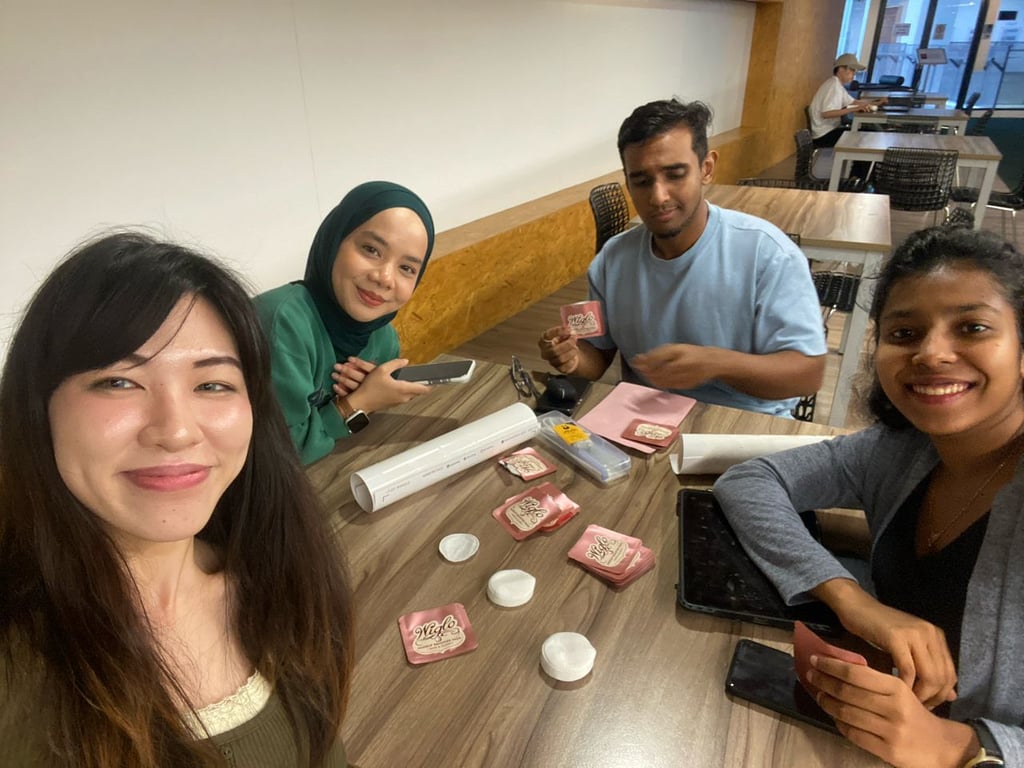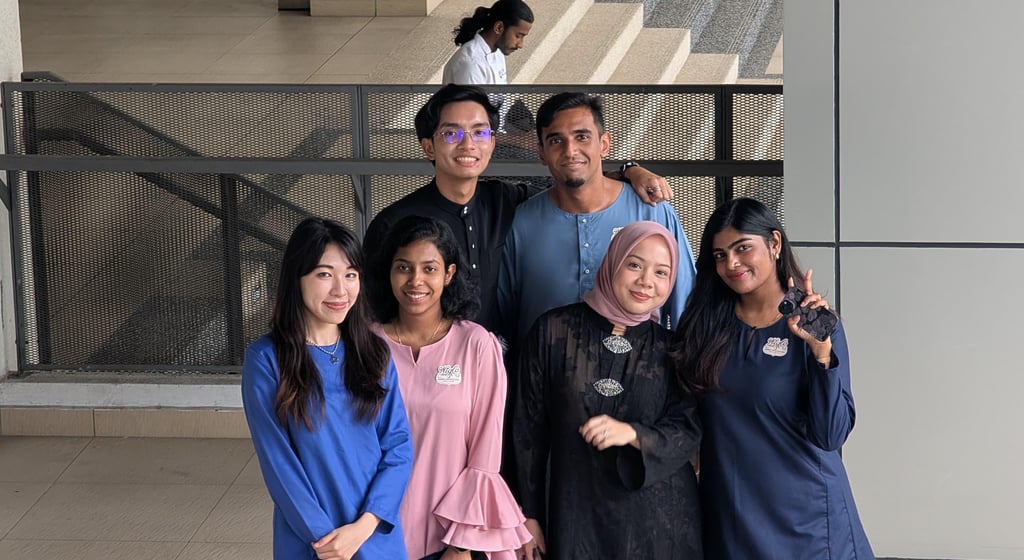Wiglo: Where Startup Spirit Meets Sustainable Beauty
What started as a student project became a meaningful journey in sustainability, teamwork, and innovation. Here’s the full story of Wiglo—our biodegradable beauty solution—and what we learned building it from the ground up.
7/13/20252 min read


As part of our Entrepreneurship subject, our team set out to create something meaningful—something that could solve a real problem and make a difference. That’s how Wiglo was born: a concept for biodegradable, travel-friendly makeup remover pads that blend sustainability, simplicity, and skin-care into one smart solution.
The inspiration came from everyday routines. We noticed that most makeup removers create a lot of unnecessary waste—think cotton pads, plastic bottles, harsh chemicals—and often aren’t designed with the planet (or sensitive skin) in mind. Wiglo aimed to change that with a gentler, cleaner, and more thoughtful alternative.
Each Wiglo pad is made with 70% bamboo fiber and 30% plant-based viscose. They’re fully biodegradable, pre-soaked with micellar water, and individually packed in resealable pouches—perfect for travel, gym bags, or late nights. And more importantly, Wiglo is proudly conceptualized as a Malaysian brand, rooted in local innovation and eco-conscious values.
But Wiglo wasn’t just about the product. It was also a startup simulation—a hands-on experience that taught us how to build a business from the ground up. We divided into roles like CEO, CFO, CMO, CTO, and CHRO to cover every aspect of business planning, from branding and budgeting to user research and product design.
Our research revealed a clear market opportunity: most makeup users—especially women aged 25–34—prioritize gentleness, convenience, and sustainability. Our survey data backed it up, and we used those insights to shape everything from our price point (RM66) to our visual branding and product features. Wiglo filled a gap where eco-consciousness meets everyday convenience.
One of the most rewarding moments was presenting Wiglo to our lecturers and peers. The feedback was overwhelmingly positive—people appreciated the vision, the environmental impact, and how realistic the product felt. We were proud of how clearly we communicated our idea and how well it aligned with modern consumer needs.
But beyond the pitch, the real win was what we learned. We discovered that sustainability isn’t optional—it’s expected. That convenience matters just as much as values. And that a strong, communicative team makes all the difference. Each of us brought something unique to the table, and together we created something none of us could’ve done alone.
While Wiglo hasn’t launched (yet!), the experience changed how we see entrepreneurship. It’s not just about business plans—it’s about solving real problems, listening to people, working through feedback, and staying open to growth. It’s about building something that reflects not only market demand, but also your values.
So, what’s next for Wiglo? That’s still unwritten. But we hope this project inspires others to think bigger about sustainability in beauty—and beyond. Whether it’s skincare, packaging, or lifestyle products, every innovation starts with a simple question: what if we did this better?
A huge thank you to our lecturers, classmates, and every person who supported this project. Wiglo might still be a concept, but it’s a powerful reminder of what student ideas can become—with the right mix of heart, hustle, and purpose.
If you’d like to see more behind-the-scenes moments from Wiglo, connect with me on Instagram or LinkedIn. We’re just getting started.

